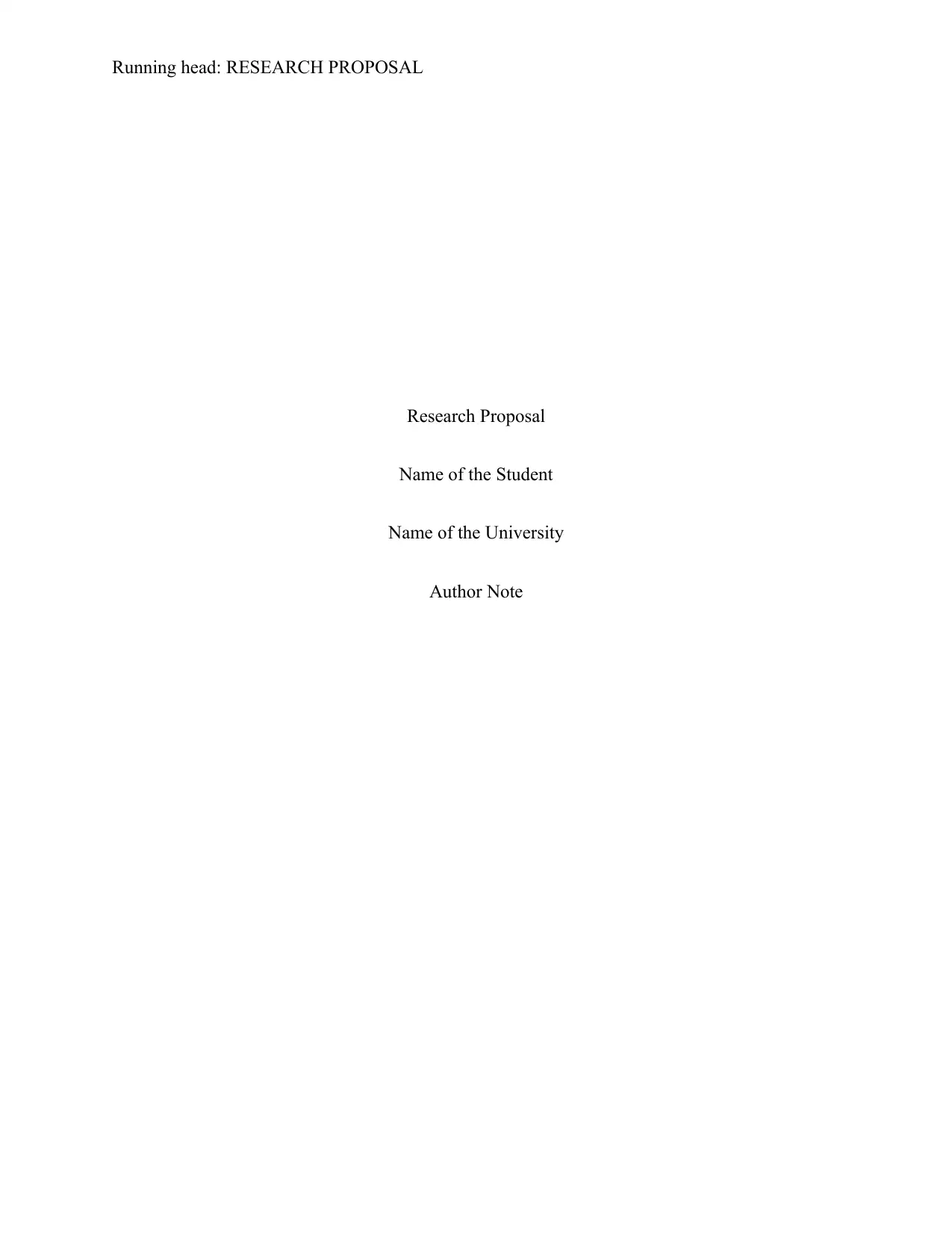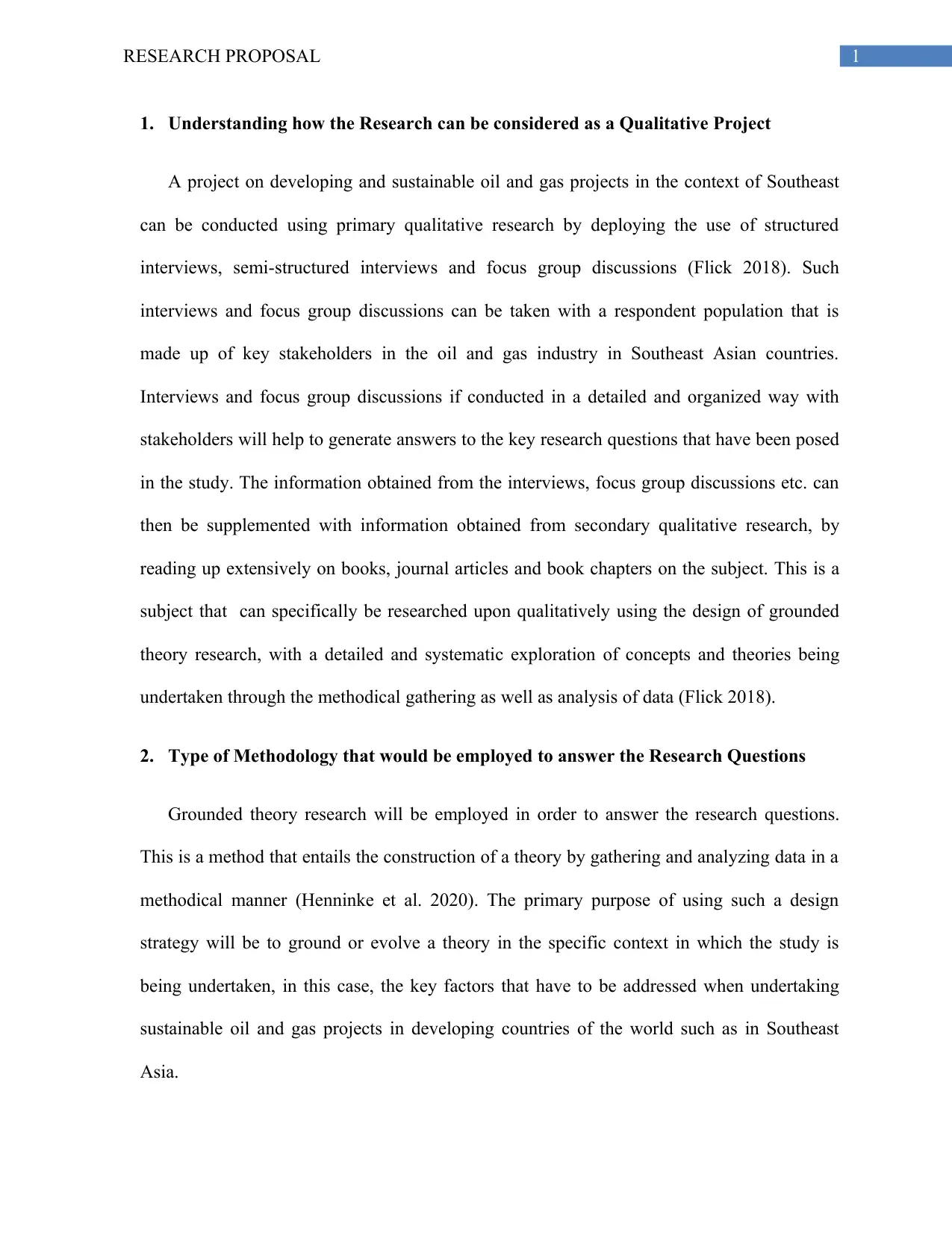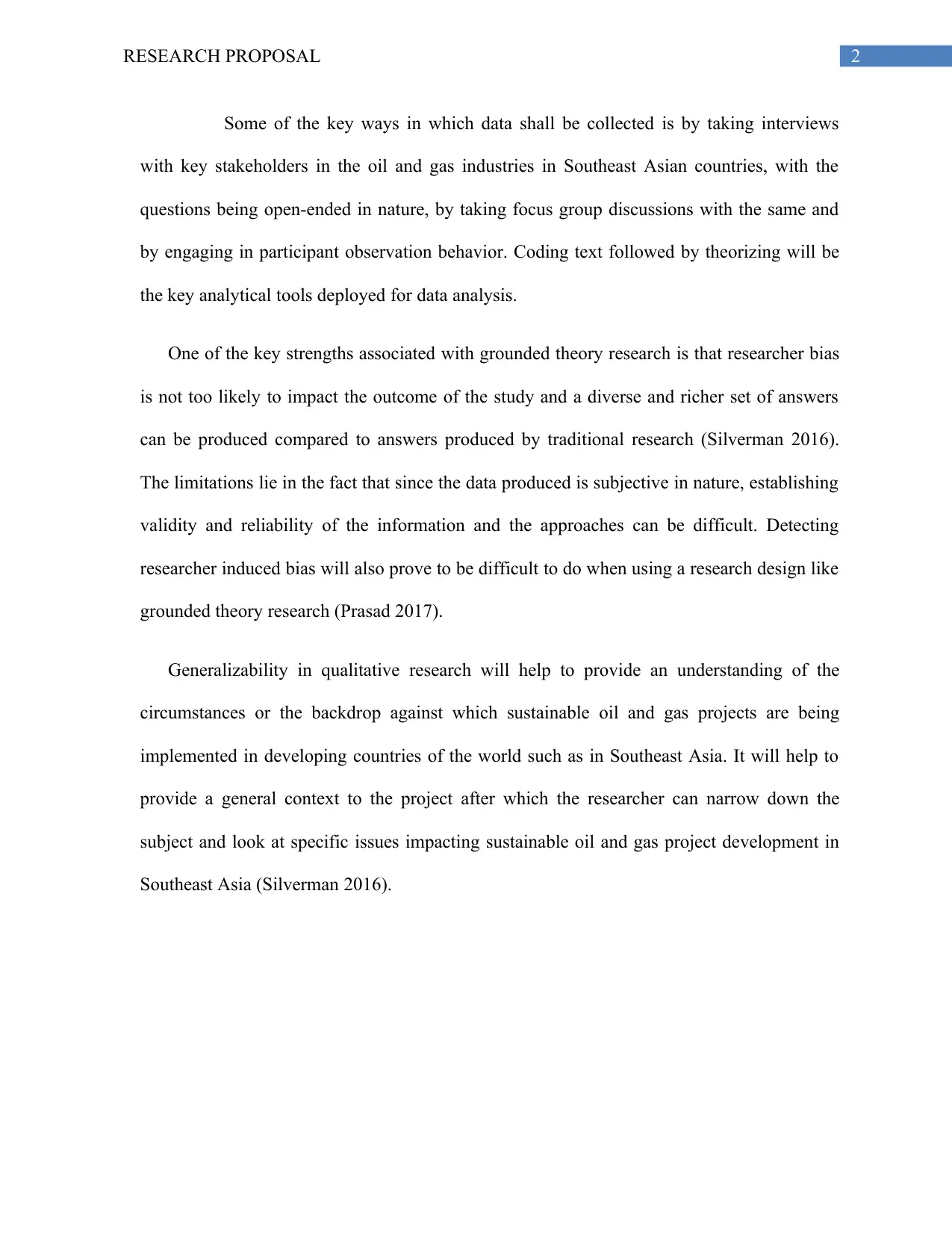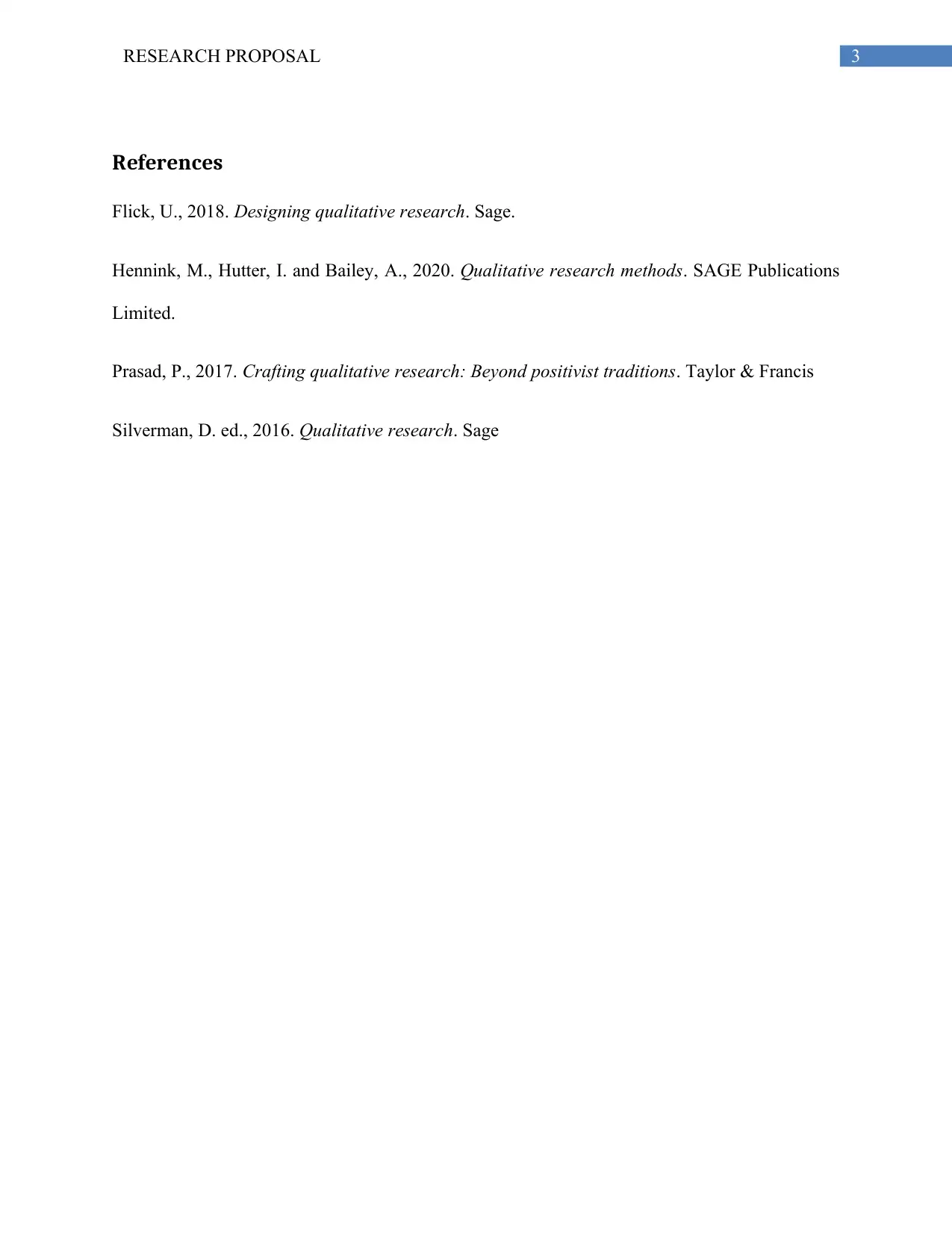Research Proposal: Developing and Sustainable Oil and Gas Projects
VerifiedAdded on 2022/07/28
|4
|654
|17
Homework Assignment
AI Summary
This research proposal explores the development and sustainability of oil and gas projects, specifically within the context of Southeast Asia. The study adopts a qualitative research approach, utilizing grounded theory as its primary methodology. Data collection will involve structured and semi-structured interviews, as well as focus group discussions with key stakeholders in the oil and gas industry. Secondary qualitative research, including literature reviews, will supplement the primary data. The proposal details the strengths of this approach, such as minimizing researcher bias and generating rich, diverse answers, while acknowledging limitations like challenges in establishing validity and generalizability. The research aims to identify key factors influencing the sustainability of oil and gas projects and to analyze risks, uncertainties, and investment decision-making in the upstream oil and gas industry within developing countries. The proposal also considers the impact of volatile oil prices on energy policies for oil and gas companies in these regions.
1 out of 4











![[object Object]](/_next/static/media/star-bottom.7253800d.svg)